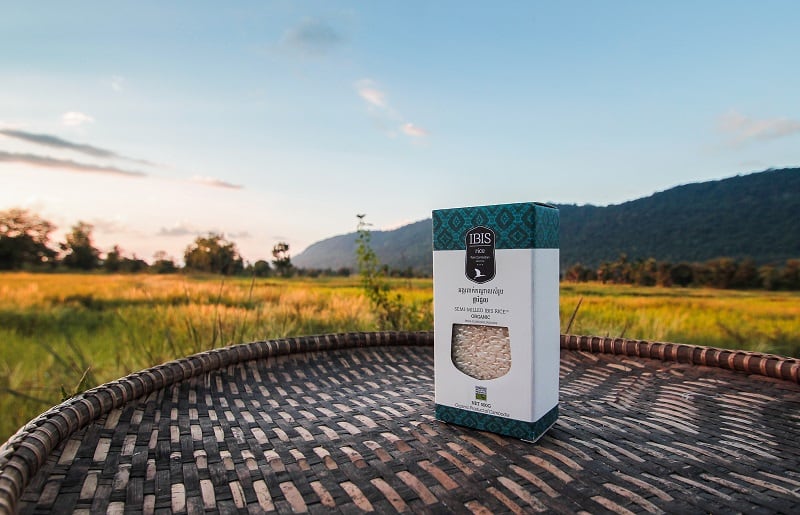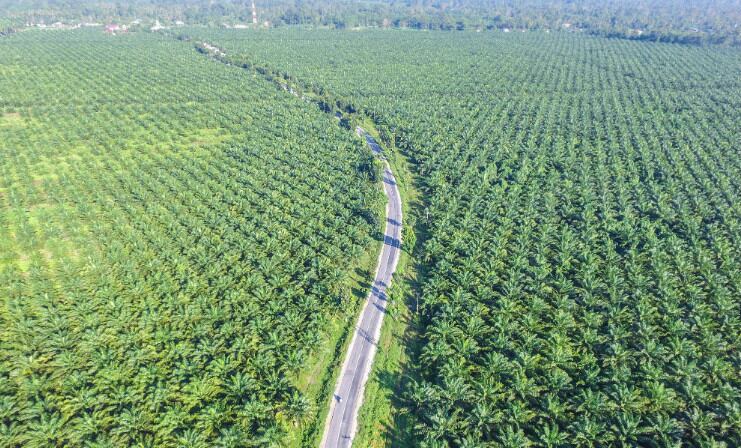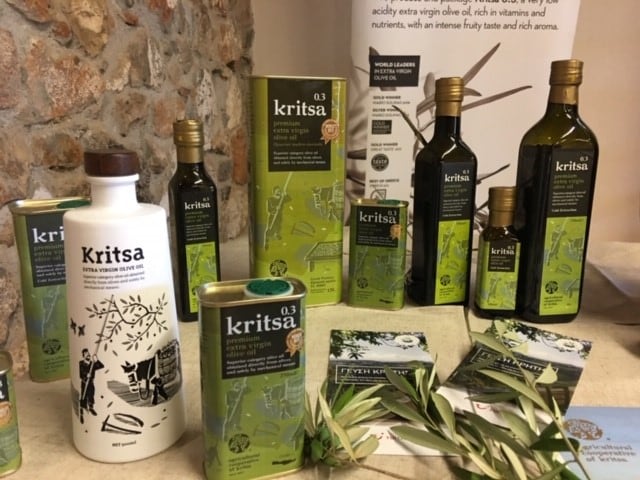Few could probably name Cambodia’s national bird, the Giant Ibis. But this notoriously shy animal that mainly lives in the northern and eastern plains of the small South East Asian country was once feared extinct due to the effects of deforestation, climate change and poaching. The Giant Ibis went unrecorded in Cambodia for more than 50 years until it was rediscovered by researchers from the US-based Wildlife Conservation Society (WCS) working together with Cambodian government colleagues in 2001.
The northern plains of Cambodia, meanwhile, also happen to be one of the best places in the world for growing high quality rice. Step in IBIS Rice, an initiative set up by the WCS in 2009, which saw an opportunity to sell great tasting rice whilst boosting the incomes of forest communities and conserve critically endangered wildlife.
“The wildlife sanctuaries in the north of Cambodia have more than 500,000 hectares of dry, deciduous tropical forests which is among the last intact expanses of this type of forest left in South East Asia,” explained the British CEO of IBIS Rice, Nick Spencer. “This type of forest used to cover large swathes of the region.”
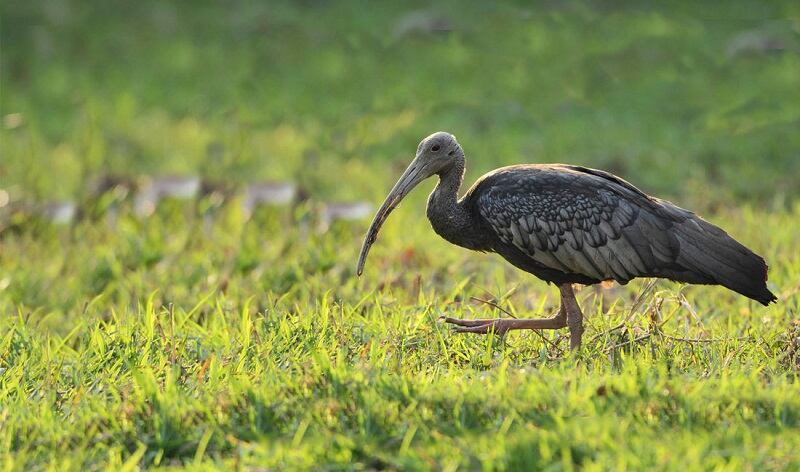
In 2001, WCS set up camera traps looking for the Giant Ibis. A camera spotted a bird close to one of the villages within a government designated wildlife sanctuary. From this sighting, WCS realised that the communities living within the wildlife sanctuaries presented both challenges and opportunities for conservation. “The farmers in these sanctuaries were growing a very high quality rice in a pristine environment,” Spencer told FoodNavigator. “However, they had very limited access to markets and quite often they were expanding into important bits of forest and hunting wildlife within the sanctuaries.”
The Ibis Rice concept provides market access for the farmers’ rice on the condition they adhere to strict rules. “These are zero hunting and poaching, zero deforestation and zero use of chemicals in agriculture,” explained Spencer. “These farmers were generally farming organically anyway but a core part of the product that it is certified organic to EU and USDA standards.”
In return, the farmers receive up to a 40% premium for the rice they produce. A team of 25 IBIS Rice staff works with around 1,200 households in northern Cambodia throughout the year to support the farmers to ensure they are complaint and able to produce the best product possible. Ibis then processes and packages the raw product and sells it around the world as a luxury rice with an ethical story.
An award-winning rice…
IBIS’s rice is a premium, Cambodian variety called Pkha Romdoul, winner of international rice of the year four times. “It’s an incredibly fragrant jasmine rice. I particularly like it left un-milled as brown rice. It has a very nutty and interesting taste,” enthused Spencer. “It’s very soft and fluffy unlike other some other brown rice.”
The other source of the quality is the fact that farmers are living in pristine forested environments with a natural fertilization. “The forest is deciduous; there is a leaf drop every year which nourishes the soil,” explained Spender. “It’s 100% rain fed and grown using traditional techniques and that really contributes to the quality of the end product.”
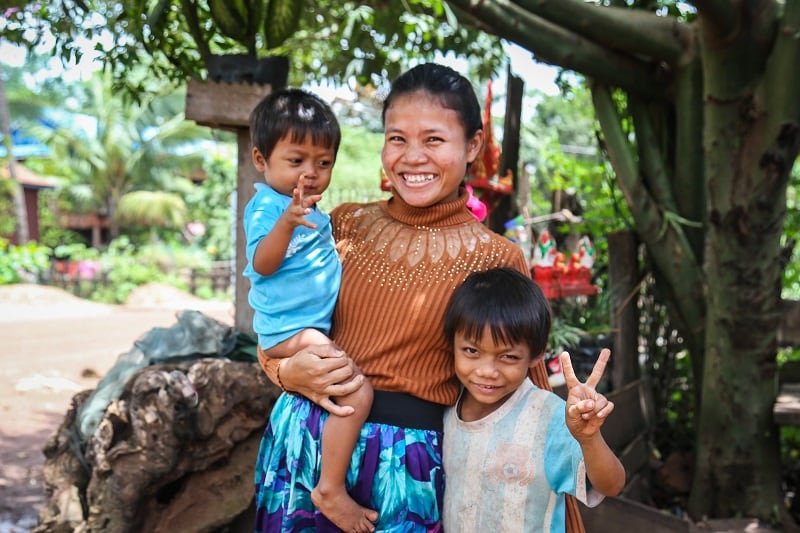
Meanwhile, Giant Ibis sightings are “steady and increasing”. WCS estimates there are now up to 400 birds in the areas where IBIS Rice operates as well as growing numbers of the white shouldered Ibis (also critically endangered), as well as vultures, wild cattle, gibbons and even Asian elephants. This is a source of great pride for IBIS Rice. “We're proud of the relationship we have with these communities,” he noted. “We didn't go into business for business sakes. We went into business to deliver this impact: to improve the livelihoods of forest communities in a way that contributed to wildlife conversation and habitat protection.”
‘A premium brand with an amazing story behind it’
IBIS Rice is currently sold in Germany (via a partnership with organic health specialist retailer Davert) Singapore, Hong Kong and Cambodia. It will soon launch in Canada via retailer One Degree Organic Foods. It also plans to launch in the UK, where Spencer believes consumers will be receptive to its story. “We are looking for retail and distribution partners in the UK. We feel that the conservation story, the quality of the product and the movement towards organic with a growing appreciation of South East Asian cuisine mean it could work very well in the UK market.”
Owing to the story behind it, it is obviously a premium product (priced at £3-£3.50 RRP for 500gm). But what other rice can offer consumers great taste as well as the thought they are helping endangered wildlife?
“We feel that the price point really only reflects the quality of the product, its traceability and organic standards,” said Spencer. “A new type of consumer is really starting to engage in the loss of biodiversity globally and understands that how we eat has a big impact on that. I hope that people will appreciate that we are in business to protect forests and wildlife and that will engender commitment and loyalty from consumers, but primarily we're giving them the best rice they can buy.”
‘We want to bring this product to as many consumers possible’
IBIS Rice sells three varieties: white, semi-milled and brown. A rice cake snacking product is coming soon. So too are new rice varieties, such as sticky black rice, as IBIS expands its model to other wildlife sanctuaries in other parts of Cambodia.
“We are already protecting 500,000 hectares of precious forest and wetlands, helping conserve more than 50 endangered species of wildlife, and increasing the incomes of 1,200 rice-farming families. There are many thousands more we would like to work with,” said Spencer. “We’ve seen that the business can deliver improved incomes, increased forest protection and improved outcomes for wildlife so we want to take this model into other wildlife sanctuaries in Cambodia. We also want to bring this product to as many consumers as we possibly can.”


